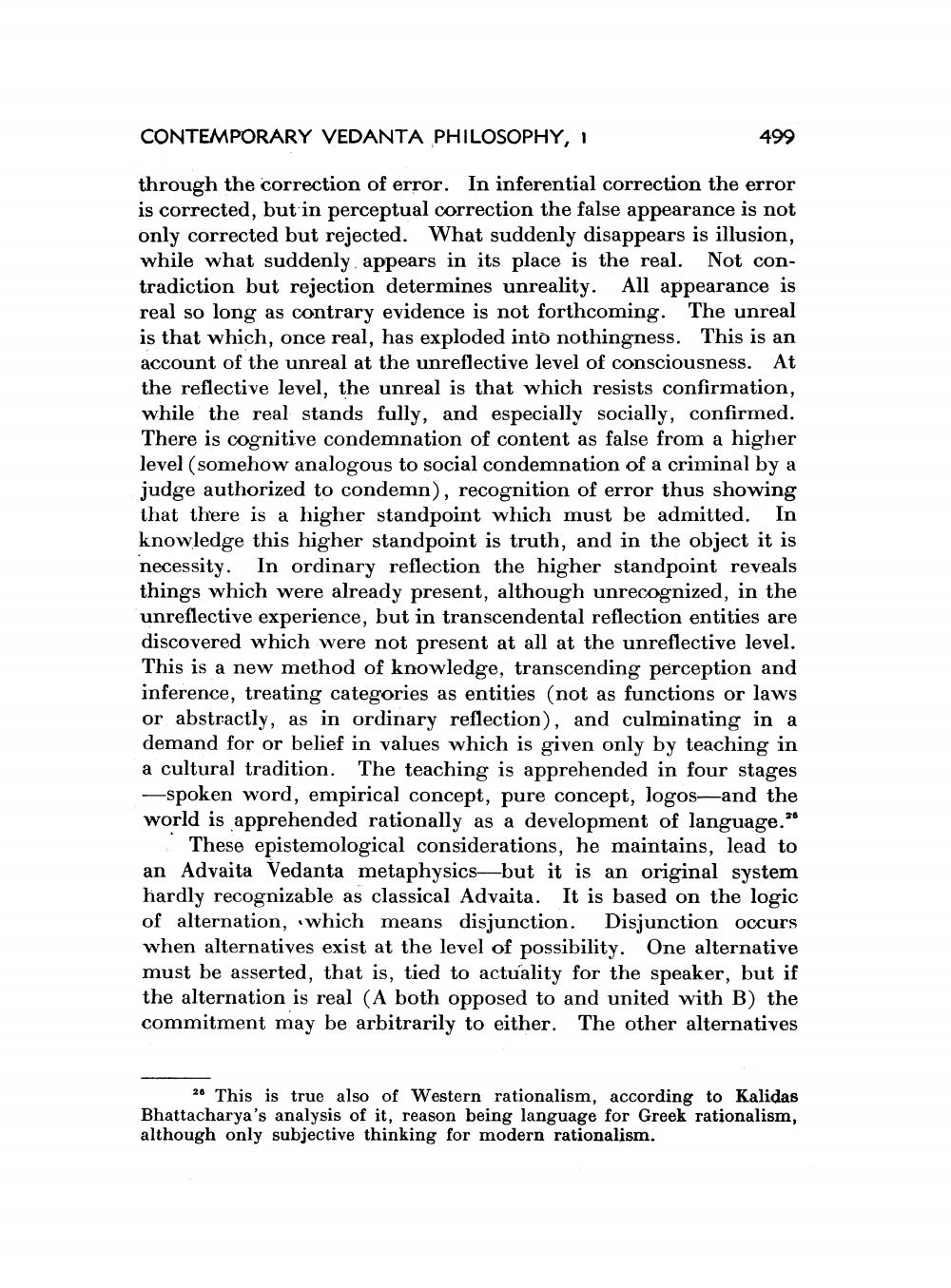________________
CONTEMPORARY VEDANTA PHILOSOPHY, I
through the correction of error. In inferential correction the error is corrected, but in perceptual correction the false appearance is not only corrected but rejected. What suddenly disappears is illusion, while what suddenly appears in its place is the real. Not contradiction but rejection determines unreality. All appearance is real so long as contrary evidence is not forthcoming. The unreal is that which, once real, has exploded into nothingness. This is an account of the unreal at the unreflective level of consciousness. the reflective level, the unreal is that which resists confirmation, while the real stands fully, and especially socially, confirmed. There is cognitive condemnation of content as false from a higher level (somehow analogous to social condemnation of a criminal by a judge authorized to condemn), recognition of error thus showing that there is a higher standpoint which must be admitted. In knowledge this higher standpoint is truth, and in the object it is necessity. In ordinary reflection the higher standpoint reveals things which were already present, although unrecognized, in the unreflective experience, but in transcendental reflection entities are discovered which were not present at all at the unreflective level. This is a new method of knowledge, transcending perception and inference, treating categories as entities (not as functions or laws or abstractly, as in ordinary reflection), and culminating in a demand for or belief in values which is given only by teaching in a cultural tradition. The teaching is apprehended in four stages. -spoken word, empirical concept, pure concept, logos-and the world is apprehended rationally as a development of language." These epistemological considerations, he maintains, lead to an Advaita Vedanta metaphysics-but it is an original system hardly recognizable as classical Advaita. It is based on the logic of alternation, which means disjunction. Disjunction occurs. when alternatives exist at the level of possibility. One alternative must be asserted, that is, tied to actuality for the speaker, but if the alternation is real (A both opposed to and united with B) the commitment may be arbitrarily to either. The other alternatives
499
26 This is true also of Western rationalism, according to Kalidas Bhattacharya's analysis of it, reason being language for Greek rationalism, although only subjective thinking for modern rationalism.




